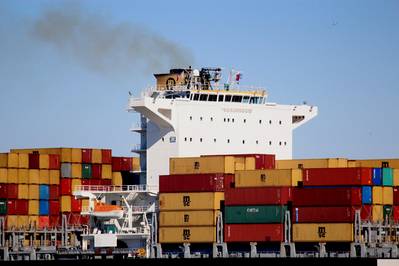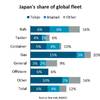Scrubbers Set to Help Shippers Meet the New Sulfur Cap
The 0.5 percent global sulfur cap by 2020 requires marine industry action.
“By 2025, up to 20 percent of the global fleet could have [scrubber] technology installed,” estimates DuPont Clean Technologies Marine Business Development Manager, Europe, Marco Dierico. “Ship owners and operators that want to minimize costly changes and continue to burn heavy fuel oil (HFO) will require a scrubber to clean the fuel. It is estimated that in the run up to 2020, between 500 to 2,000 additional ships will retrofit with scrubbers.”
The October 27 decision from the International Maritime Organization’s (IMO) Marine Environmental Protection Committee (MEPC) to enforce a global 0.5 percent cap on sulfur emissions from fuels by 2020 will necessitate ship owners and operators to select an emissions abatement solution in order to meet the new requirements.
Ready to help the marine industry comply with the new cap, tailored exhaust gas cleaning systems from DuPont Clean Technologies remove SOx and particulates. DuPont has over 300 scrubber installations globally both on land and at sea and provides customers worldwide with project management expertise.
From in-line to multi-stream configurations, open- to closed-loop and hybrid configurations for container, tanker and passenger ships, DuPont has developed and installed a range of flexible solutions to suit the varying needs. Retrofitted to existing ships and installed in new builds, DuPont Marine Scrubbers are suitable for main and auxiliary engines as well as boilers.
To meet the 2020 global sulfur cap, ship owners and operators may consider switching to marine diesel oil (MDO)/marine gas oil (MGO), liquefied natural gas (LNG) or methanol. However, as the price differential between HFO and MDO/MGO increases, many shippers will install exhaust gas cleaning systems to quickly and effectively meet regulations.
A key question for refiners concerns the future of HFO. If refineries do not have to upgrade their heavy fuel, or install increased hydrotreating capacity, they will prefer not to. It is expected that HFO with a higher sulfur content will become significantly less expensive compared to low sulfur fuel oil over time, which will make installation of a scrubber economically sound and future-proof for shippers.
Scrubber technology continues to advance, and additional improvements in emission monitoring, washwater treatment, and reduced system footprint are on the horizon. With many options, shippers will be able to make smart choices that both protect their bottom line as well as human health.
















